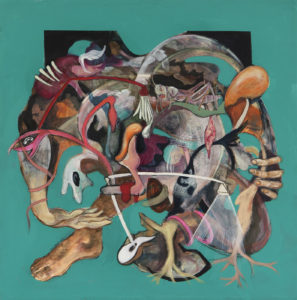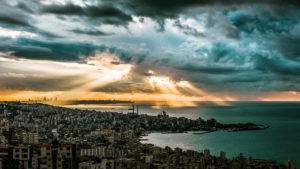A photo of four fighters from the Lebanese Civil War begins a son’s journey of discovery, in a new translation excerpted from Hilal Chouman’s novel of the same name: Sadness in My Heart.
Hilal Chouman
Translated from the Arabic by Nashwa Nasreldin
I heard a faint tapping at the door then the knocks grew louder. Someone was calling out, using my first name: “Mr. Youssef! Mr. Youssef!” I opened my eyes and my head immediately began to throb. I discovered that I was in the hotel bed, naked, and that a young man was asleep nearby, fully clothed, covering his face with a pillow. The hotel phone was resting on the floor, its receiver detached. Slowly, I nudged the pillow aside and found Jean’s face.
The rapping on the door continued and I was able to distinguish the voice. A hotel worker was calling out my name and talking to someone. In my unsteady state, finding a pair of shorts was an effort. I swayed as I attempted to walk, then promptly fell to the floor. I managed to locate the shorts, close to the spot where I landed, so I slipped them on laying down. Then I tried to get up again, leaning on the edges of the bed and the other furniture, and against the walls, until I reached the door. Keeping the chain attached, I cracked the door open, and the faces of the housekeeping employee and Jameel appeared.
“Sorry to wake you this way, Mr. Youssef, but you have a meeting with His Excellency, the minister,” Jameel says.
“What time is it?” I asked, rubbing my head. “I had a lot to drink last night and I don’t feel well. Let’s postpone the meeting.”
“The minister’s traveling this week. Today’s your only chance to meet him if you don’t want to wait. And…” Jameel added. “It’s the minister, and he specifically asked to see you. I’m sorry. I’m just doing my job.”
“Okay … give me ten minutes at least, to shower. I’ll come down after that,” I acquiesced, closing the door.
Rushing to the bathroom, I washed my face twice before I was overcome by the urge to vomit. I threw up into the toilet bowl in bursts. Then I stepped straight into the shower, still swaying. I stood under the shower stream for fifteen minutes, maybe more. After that, I got dressed, pulled out my father’s notebook and tucked it into my jacket pocket. As for the photo of his friends and the will documents, I arranged those in a folder. Glancing at Jean, I could see that he was sleeping deeply, just as I’d left him, unaware of what had gone on in his presence. I left him a note under the telephone set, which I had picked up from the floor and returned to its place by the bed.
When I went down, I found Jameel waiting for me in his car at the hotel entrance. He immediately climbed out and walked around to open the door for me and guide me in.
“You need a coffee, and something to eat,” Jameel said, eyeing me through the rearview mirror. “You can’t meet the minister like that.”
“I just need a few more minutes’ sleep,” I replied, wriggling to try and lie down sideways on my seat.
The slamming of brakes, and what sounded like Jameel cussing at a driver in front, woke me for a second time.
“I’m sorry, Mr. Youssef.”
“Don’t worry,” I said, heaving myself back up and looking out of the window.
Without waiting for me to respond, he continued: “I’ll take you to a place where you can have breakfast.”
A few minutes later, the car stopped by the seaside promenade and a security officer opened the door for me.
“Here we are,” Jameel said. “Go and grab a seat inside. Get yourself some breakfast and a coffee. I’ll wait for you here. You have half an hour.”
“You’ll come with me,” I insisted.
“I can’t leave the car. Security precautions.”
“Park over there, at the front,” I said, getting out of the car. “Keep the keys and ask those guys to keep an eye on it. I won’t go in until you’ve come out.”
I walked over to the coffee shop entrance and waited. Jameel parked and stopped to talk to the young men, pointing at the car. After handing them some cash, he caught me up. From the way Jameel was greeted, it seemed that the waiter knew him. We were led to a table at the far side of the beach, right by the seafront.
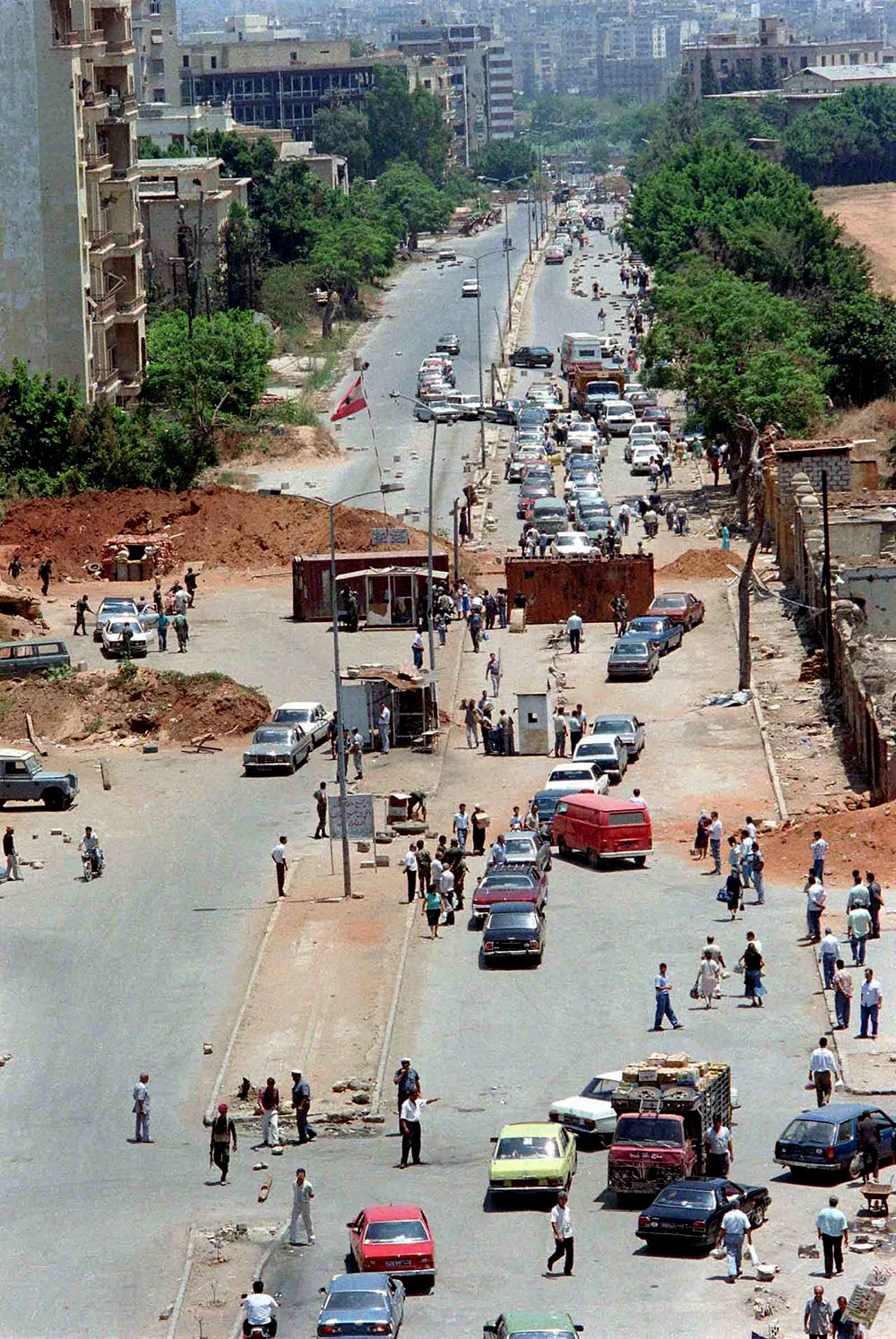
“I ordered you a knéfé. It’ll help you get rid of the hangover,” Jameel said, pouring the coffee into my cup and handing it to me.
“Do you always come here?” I asked him.
“I used to,” he replied, then stared silently at the sea. He didn’t seem to want to talk, so I focused on drinking my coffee. The waiter returned and placed a dish in front of me.
“So good!” I said, in English, once I’d tasted the knéfé.
Suddenly ravenous, I wolfed down half of the food on my plate. Then I slowed down, deciding to press Jameel into opening up to me.
“Tell me, Jameel, what did you do during the civil war?”
“What everyone else did.”
“I mean, how did you live? How did you protect yourself and your family?”
“I didn’t.”
“Huh?”
“My wife died in the war, and I’m the one who raised my children. After that, I made sure they left the country to study abroad.”
“I’m sorry, I didn’t mean …”
“Judging wars, Mr. Youssef, is easy. You can say that war is evil, and assume that you would find a way to be neutral in the face of its atrocities. But that’s not how it works.”
“But didn’t you think this through during the war?”
“In the early days, maybe. Then, like any system in life, the details consume you until you end up following a daily routine that someone else has forced on you, and it becomes a struggle just to survive. In times of war, societies are pushed to the edge. In times of war, everything becomes personal. Whatever the reasons behind war, sometimes it’s impossible to escape it. And you might be forced to play a part in it. War is an extremely radical experience — it relegates everything that came before it to the ash heap of history, and it seeks to establish a new order, either by repudiating the former order, or endorsing the regime’s unspoken acts. In war, societies are reshaped. Don’t get me wrong, peacetime also comes with its own set of characteristics. This road we drove along wasn’t like this ten years ago. Those towers that devour the road opposite the Corniche tell another tale of the way societies are remodeled.”
“You seem to have a very thorough personal perspective on war, so much so that it sounds like … you might have taken part in it?”
“Of course, I took part. Just like everyone else. I was a member of a party, then a fighter. If you go down to any street right now in Beirut and walk among the people, you’ll come across former fighters. It’s inevitable. The war ended and everyone returned to their bases, safe, or dead, while others were promoted.”
“Promoted, like the minister?”
“Forgive me if I don’t answer that.”
“Okay, so what happened to you afterwards?”
“I wasn’t a member of a party anymore, but I’m still political.”
“Since I decided to come here, I’ve tried to do some research. I read, and the more I read, the more complicated it gets. What I still can’t understand is how societies descend into civil war in the first place.”
“In war, there’s no such thing as a good person or a bad person.”
“I remember my father, a few years ago, weeping at a news broadcast of demonstrations in the center of the capital.”
“We all wept.”
“Did you go down to those protests?”
“I watched them on TV. But I know people who walked for more than an hour just to reach the square. People like us, Mr. Youssef, grow older, and can no longer endure hope. Each time we build our hopes up we invest in a project that’s doomed to failure. So …”
“So …”
“So, I prefer to watch Netflix and to take care of my cat. Come on … we need to leave or we’ll be late for His Excellency, the minister.”
As he stood up, he turned to me. “Don’t ask these questions to His Excellency,” he cautioned. “And don’t repeat anything we said.”
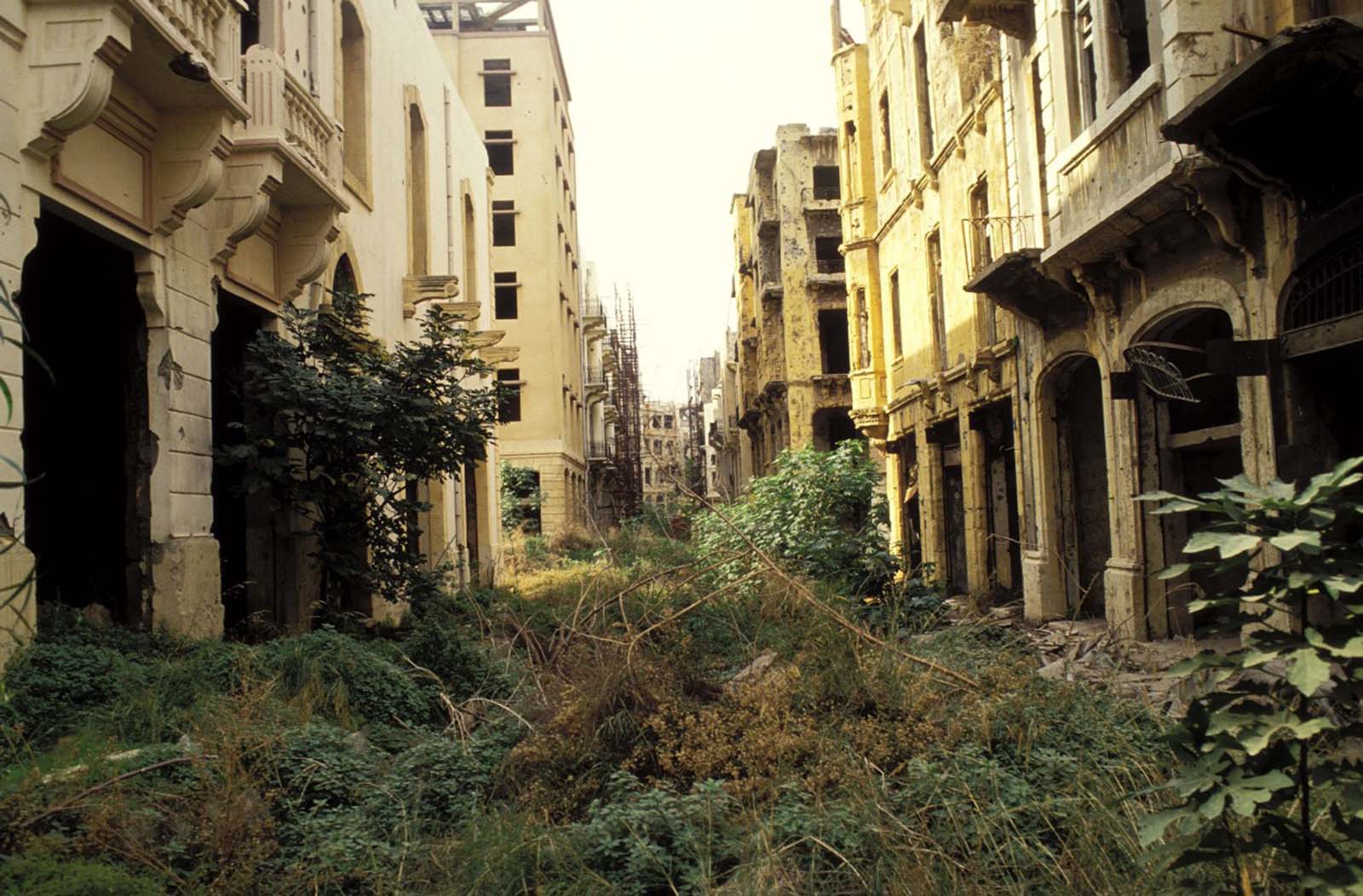
We entered a broad courtyard of a house whose architectural design distinguished it from the buildings that surrounded it. The car stopped near a large wooden door, with security guards gathered in front. Before I stepped out of the car, I couldn’t help but offer an observation that Beirut was full of security guards. Jameel responded with a glare to shut me up.
I waited alone in a large salon on the ground floor. A number of waiters and staff kept coming up to me, asking if I wanted a drink. They informed me that the minister would be a few minutes late. I kept my father’s blue notebook in the pocket of my jacket and began to flick through the photos and the rest of the documents in the folder.
The minister entered with two escorts, so I stood up, placing the folder on the couch near me.
“Good morning,” the minister said, as he shook my hand.
“Good morning,” I replied.
“Leave us on our own,” the minister gestured to his escorts, who withdrew and closed the door behind them.
The minister sat down, and for a few seconds silence prevailed, before he glanced at his watch: “I can spend 15 minutes with you. You should make the most of them because I’m traveling this week. Have you buried your father?”
“I scattered one set of his ashes and there are six more left for other locations.”
“He didn’t change … Your father is an old comrade. I remember how, once, right before he emigrated, or maybe after, I can’t remember, he called me and said something about death and ashes. It was a very moving conversation. I thought he only said that because he was feeling emotional at that particular time. But it looks like he went through with his old promise.”
I didn’t know what to say. Had my father told him, years ago, that he would want to be cremated? I decided to break the silence by pulling out the photograph and offering it to him. He stared at it briefly then sighed and began to speak, without waiting for me to comment.
“They told me about this photo. Your father took it of us during the war. I didn’t know that he kept it with him. He used to love cameras and photography, but he never showed the photos to anyone.”
“Can I ask what happened to the people in the photograph?”
“Listen, I will tell you in brief, but I won’t discuss this subject again … Myself — Elie Nassar — Sami Boutros, George Karam, and your father, four comrades who went their separate ways. Sami committed suicide; he fell into a chronic depression after his son was killed in the war and his other son kidnapped. One day, we woke up to the news that he’d thrown himself off a balcony. And he wasn’t the only one. Your father didn’t tell you anything about him, right?”
I shook my head. I didn’t feel there was room for me to ask questions. It seemed that the entire matter had sprung up out of nowhere and that I hadn’t known my father at all. The minister continued to talk, as if I was invisible. He asked questions and answered them himself, digressed, and explained whatever he wanted to explain. It seemed that he’d come to this meeting determined to share his story.
“Maybe he didn’t tell you because he didn’t want you to know,” he added. “Your father often behaved oddly.”
Life before the meeting with the minister was very different to that which followed.
I had entered with a hangover, and emerged with a civil war headache. What I had tried to avoid, had occurred. What I had tried to ignore, was not only revealed; it could no longer be hidden. I sat on a wooden chair at the entrance to the building and thought about what Nassar had said. Everything he had disclosed made sense, and would be corroborated by my father’s diligent tracking of Lebanese news, as well as information he received from Lebanon, and the Lebanese friends who visited him in Berlin.
Nassar said they were four: him, Sami, George, and my father — friends, of weapons, marching and war. And according to him, they were defending the country’s identity and survival in the face of the other project.
“We came out of the war defeated. We should have stopped denying it and admit to our defeat, so we could return. We wasted time convincing ourselves that we hadn’t been defeated and that the others would soon fail, that the people would demand our return. But none of that happened. We didn’t read the political conditions accurately, nor fall in with the regime. Sami felt that he’d lost his two sons for nothing, so he became depressed and committed suicide. George decided to switch alliances, and to ride the wave of the times and … I don’t want to talk about him now because he’s in a dishonorable state. As for your father and I, we ended up in voluntary exile at the right time. Me in Paris, and him in Berlin. We kept talking, even though your father didn’t say much about his life. I found out through acquaintances who used to visit him that he got married, had a son, and divorced. He wasn’t aware of how much I knew about him. I didn’t embarrass him by asking anything personal. I contented myself with generic questions and he would usually respond.
Then our phone calls cut off until whatever happened, happened, in 2005. Hariri’s assassination was the fatal blow to the regime that exiled us, and represented the downfall of the regime that we had all been waiting for. Fourteen years of oppression, exile, and anticipation that was only ended by the regime itself, through rampant arrogance. Events sometimes catch you by surprise; they occur randomly, in a way you may never have expected, and produce results that can be organized and presented. I called your father; I told him that it was a good opportunity, the chance we’d been waiting for, I relayed the reassurances we received, and I begged him to return, like we did. We would begin where we left off. We would erase the years of defeat and anticipation. He refused. He didn’t oppose us returning, but wouldn’t join us. I couldn’t understand why he took this decision, and I’d never known him to be inconsistent.
During the war, your father was the “different” one of the lot, and he’d always be several steps ahead of the rest of us. So I put it down to that. When I began to help build the political movement, I called him several times. His responses were dry and I sensed that he didn’t want me to discuss anything with him or to consult him in such matters. I respected this about him. Then I became occupied with the general responsibilities that I had taken on, so I stopped calling. I didn’t know that he’d died until they told me that you were arriving at the airport. He died quietly, without any of his friends knowing. Clearly, he wanted to deny us any chance of commemorating his death, and to disappear, silently. That was true to form. Even thinking about this is moving. The time we spent together passes before my eyes in a flash. Can I ask you if he left anything else behind, other than this photo?”
I presented him with the map of where the ashes would be scattered, which he took from me and scrutinized.
“Did he leave anything else?” Nassar persisted.
“Nothing,” I said, deciding not to tell him about the notebook in my pocket.



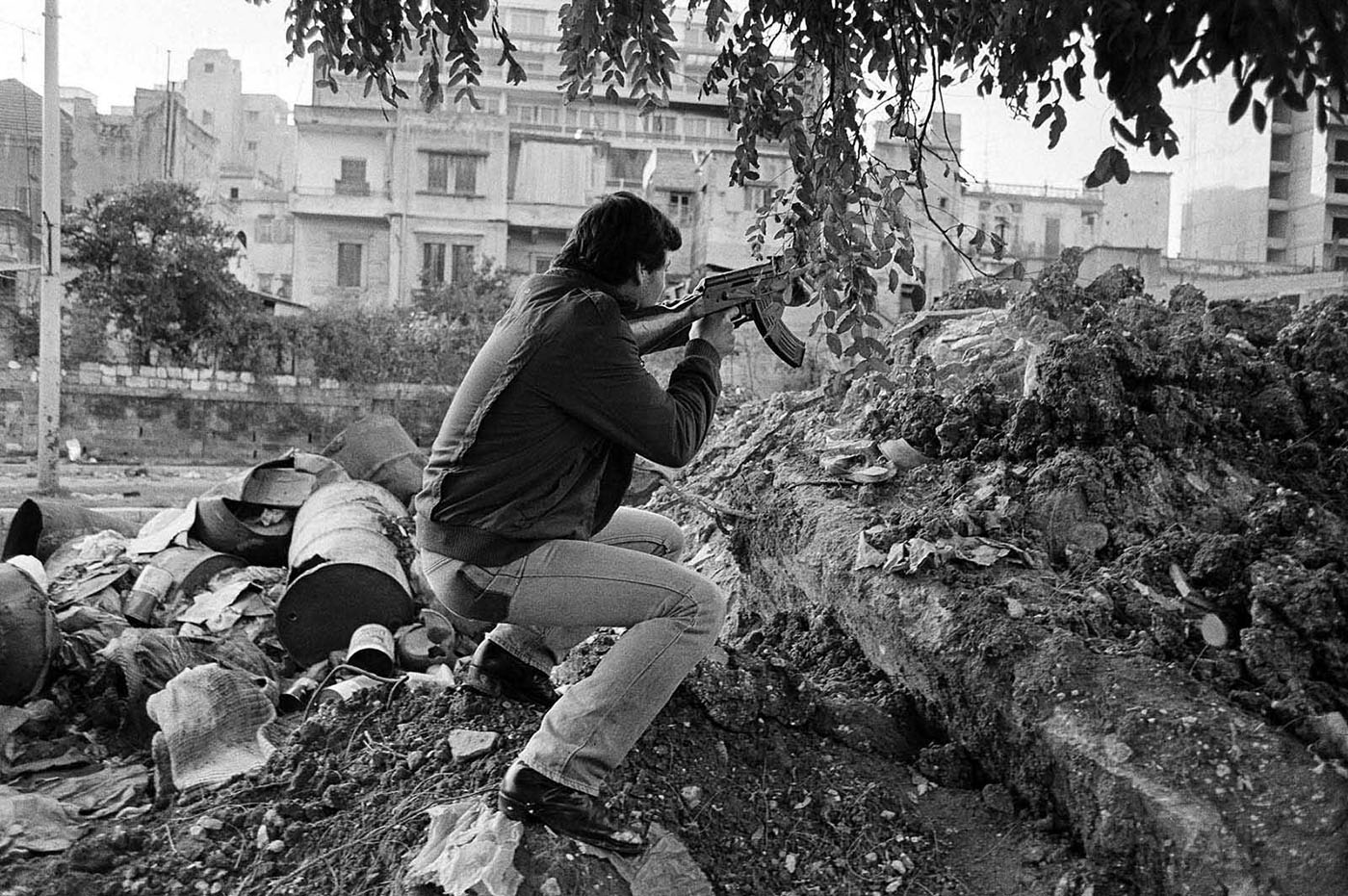
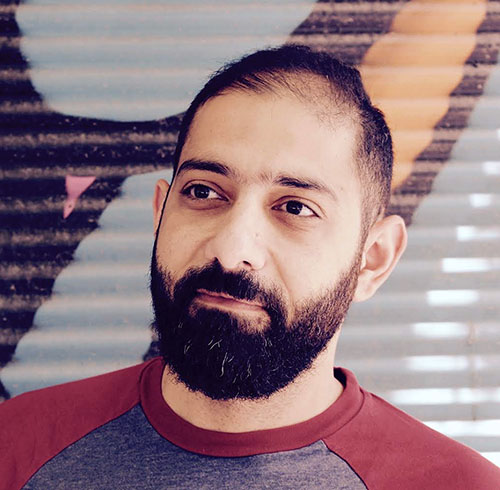




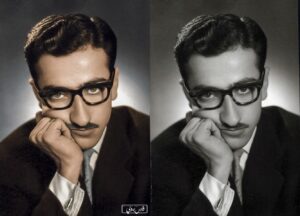



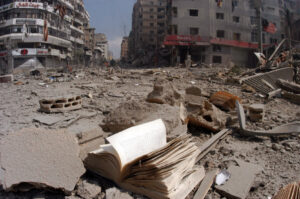







![Ali Cherri’s show at Marseille’s [mac] Is Watching You](https://themarkaz.org/wp-content/uploads/2025/09/Ali-Cherri-22Les-Veilleurs22-at-the-mac-Musee-dart-contemporain-de-Marseille-photo-Gregoire-Edouard-Ville-de-Marseille-300x200.jpg)

























































































